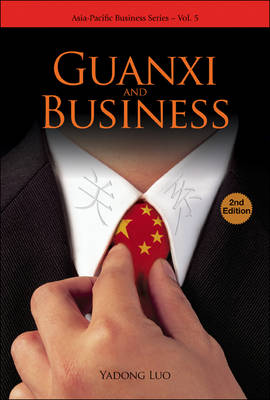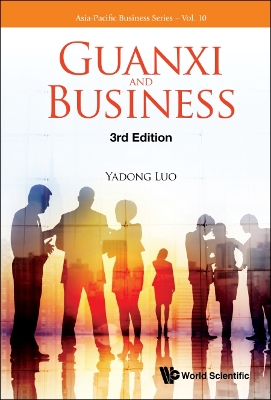Asia-pacific Business
2 primary works
Book 1
Guanxi (interpersonal relationship) is one of the major dynamics of Chinese society. It has been a pervasive part of the Chinese business world for the last few centuries. It binds literally millions of Chinese firms into a social and business web. It is widely recognized to be a key determinant of business performance, because the life-blood of the macro economy and micro business conduct in the society is the guanxi network. Any business in this society, including local firms as well as foreign investors and marketers, inevitably faces guanxi dynamics. No company can go far unless it has extensive guanxi in this setting. In China's new, fast-paced business environment, guanxi has been more entrenched than ever, heavily influencing Chinese social behavior and business practice.Despite the current academic and practical interest in guanxi, there is no book-length treatment systematically and vigorously exploring the concept and practice from the business perspective. This book fills that gap by exploring the various social economic cultural, and business issues relating to the complex concept and practice of guanxi.
Book 10
Interpersonal relationship (guanxi) is one of the major dynamics of Chinese society. Guanxi has been a pervasive part of the Chinese business world for the last few centuries. It binds literally millions of Chinese firms into a social and business web. In China's new, fast-paced business environment, guanxi has become more entrenched than ever, heavily influencing Chinese political landscapes, social behavior, and business practice.This book delineates social and cultural principles and philosophies underlying guanxi dynamics, along with guanxi's social norms that have been long embedded in the Chinese society. Although guanxi is embedded in almost every part of social life in China, companies demonstrate different needs and capacity toward guanxi cultivation. Chinese firms develop guanxi as a strategic mechanism to overcome competitive and resource disadvantages by cooperating and exchanging favors with government authorities and other stakeholders. This book presents an integrative framework about guanxi development according to institutional, strategic, and organizational factors. It further articulates how foreign firms adaptively develop their own legitimate and effective guanxi in China's highly dynamic and complex environment.Guanxi is really dynamic that its practices have been constantly changing and its normative and cognitive legitimacy is shifting as the social and economic structures in the society are drastically transforming. For this reason, this third edition of the book has added numerous new and emergent issues such as moral degradation and guanxi, qualitative and quantitative review of guanxi studies, and guanxi ties between organizations.

